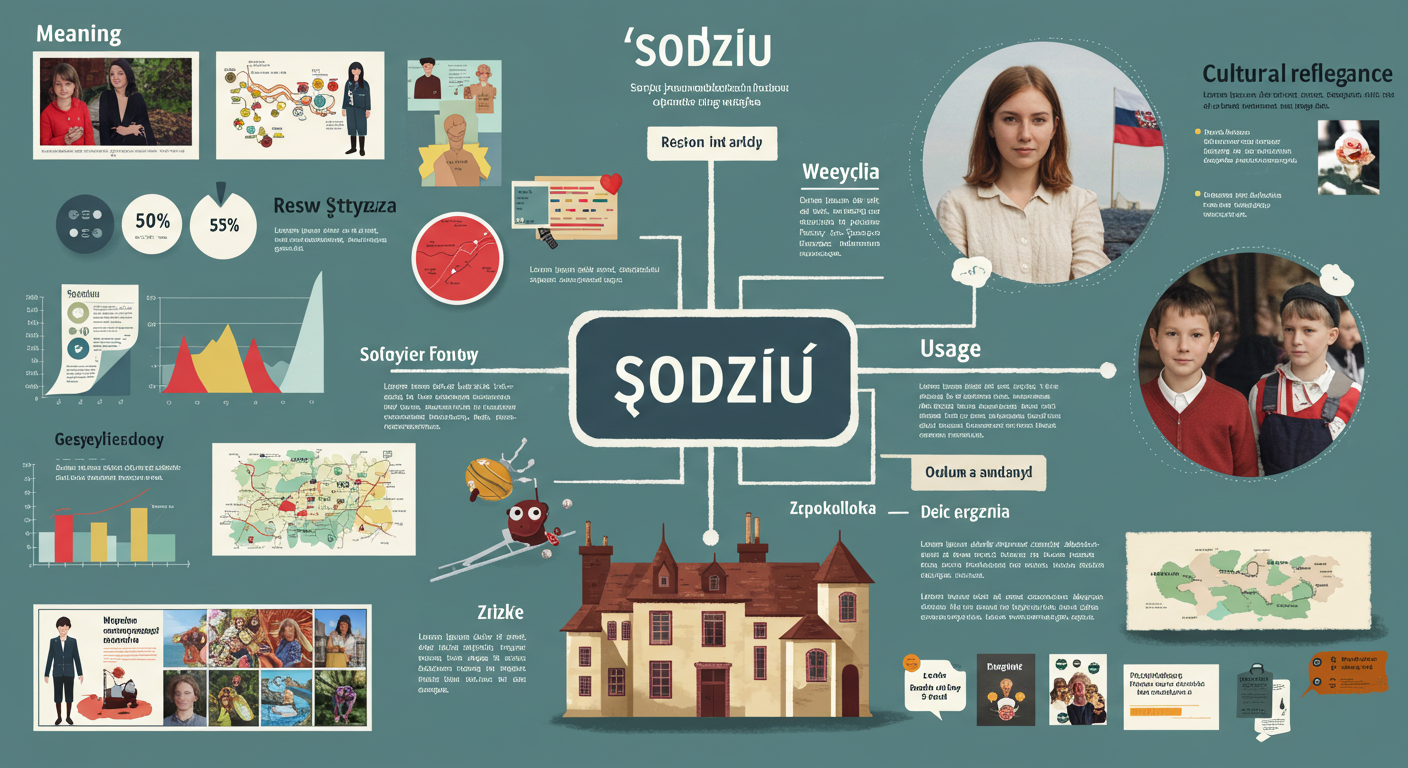The term sodziu may appear simple at first glance, but it holds deep cultural, linguistic, and even emotional significance, particularly in Lithuanian contexts. Whether you’re a linguist, traveler, or cultural enthusiast, understanding the roots and implications of sodziu opens the door to a richer appreciation of communication and identity. In this article, we’ll explore the origins, meanings, modern uses, and broader relevance of sodziu, while keeping its essence intact.
What Does Sodziu Mean?
The word sodziu is derived from the Lithuanian language and is an informal or emphatic expression that loosely translates to phrases like “I mean,” “like,” or even “in a word.” It’s a filler word, yet one that carries tone, emotion, and sometimes even sarcasm, depending on how it’s used.
In spoken Lithuanian, sodziu plays a similar role to words like “well,” “so,” or “basically” in English. It may not always have a concrete definition, but its purpose in a sentence is clear—it helps transition thoughts, fill pauses, or underline a point.
The Linguistic Role of Sodziu
From a linguistic perspective, sodziu functions as a discourse marker. Discourse markers are expressions used to organize speech or writing and convey the speaker’s attitude. Common English discourse markers include “you know,” “like,” or “anyway.” Similarly, sodziu helps Lithuanian speakers express uncertainty, emphasis, or transition between ideas.
For example:
-
Sodziu, aš nežinau ką daryti.
(I mean, I don’t know what to do.)
In this example, sodziu adds an emotional touch, conveying a sense of frustration or indecision.
Cultural Context of the Word Sodziu
To understand , it’s essential to also appreciate its cultural setting. Lithuanian is one of the oldest Indo-European languages still spoken today, and it’s full of nuances that reflect centuries of history, folklore, and societal development. Words like , though informal, are deeply rooted in daily interactions and mirror how language evolves through generations.
In Lithuania, can be heard in casual conversations, youth slang, or even in regional dialects. Its usage varies depending on the speaker’s age, region, and tone of voice. While it might not appear in formal writing, it’s commonly heard in podcasts, vlogs, and social media, making it a staple in modern spoken Lithuanian.
Modern Usage of Sodziu in Conversation
Today, the term sodziu has found its way into digital conversations. In text messages, online chats, and memes, is often used for comic or dramatic effect.
Here are a few examples:
-
Sodziu, buvo labai keista situacija.
(I mean, it was a very strange situation.) -
Sodziu… net nežinau nuo ko pradėti.
(Like… I don’t even know where to start.)
Its flexibility makes it a favorite among young people, similar to how English speakers use “literally” or “like” to add flair or intensity.
Why Understanding Sodziu Matters
While sodziu might seem like a trivial expression, learning about such words gives language learners and cultural explorers insight into how real people speak. Textbook Lithuanian often omits such filler terms, yet they are indispensable in real-world communication.
For travelers or expats in Lithuania, recognizing words like enhances listening comprehension and social interaction. For linguists, it reflects the dynamic, living nature of language. And for Lithuanians themselves, is a piece of conversational identity—small but significant.
Sodziu and Its Similarities in Other Languages
Almost every language has its own version of . For example:
-
English: “So,” “like,” “basically”
-
Spanish: “Pues,” “o sea”
-
French: “Ben,” “euh”
-
German: “Also,” “naja”
These expressions serve the same purpose: to make speech more fluid and expressive. Recognizing this universal linguistic trait reveals the human side of language—imperfect, evolving, and beautifully inconsistent.
Misconceptions About Sodziu
Some people view and similar words as verbal clutter, especially in formal contexts. However, this perception ignores the emotional and expressive value of such terms. Just as body language adds meaning to physical interactions,adds tone and intent to spoken language.
In fact, skilled speakers use strategically—to pause for thought, to emphasize a point, or to soften a statement. It’s not a flaw in communication—it’s a feature.
Conclusion: The Power of a Simple Word Like Sodziu
In conclusion, is far more than just a linguistic filler—it’s a mirror of how people think, speak, and connect. Its use reflects cultural patterns, generational identity, and emotional nuance. Whether you’re a linguist, a language learner, or just someone fascinated by cultural expression, learning about offers a small but meaningful glimpse into the soul of Lithuanian language and society.
So next time you hear someone say , listen carefully—it might just reveal more than the words that follow.
